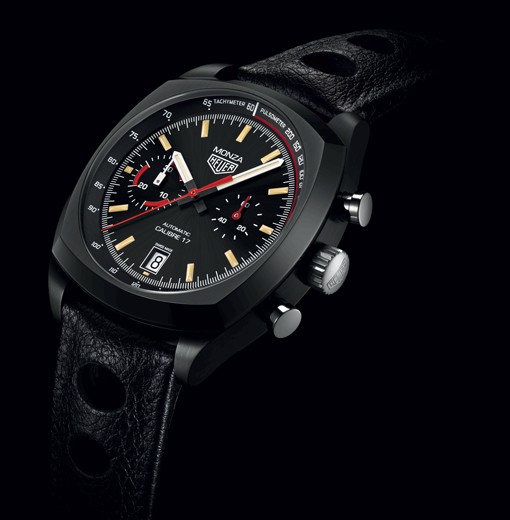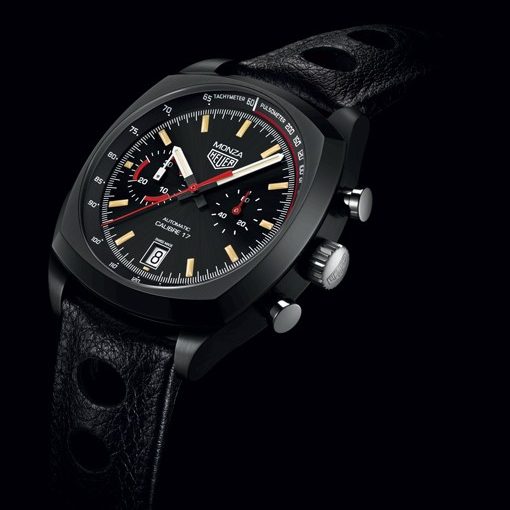September 1975, Monza race track, Italy: racing driver Niki Lauda wins the Formula 1 Grand Prix for Ferrari. A few months later, in 1976, Jack Heuer, great-grandson of the company’s founder, designed a chronograph in honour of the victory (Heuer was the Scuderia’s official timekeeper from 1971 to 1979). This was the first time “Monza” had appeared as an inscription on a replica watch dial.

The all-black chronograph had a cushion case, pulsometer (for measuring heart rate), tachymetric scale (to calculate speed as a function of time) and red hands and counters adding a sporty touch. The innovative and stylish design of the Heuer Monza set it apart, and helped to shape the legend we know today.
For 2016, the 40th anniversary of the Heuer Monza chronograph, TAG Heuer men’s replica is unveiling a new version of this iconic replica watch. The reissue, modelled faithfully on the 1976 Heuer Monza, features two key functions of its predecessor: the pulsometer and the tachymeter, a first for the company, since no previous remake has had both. The famous black cushion case, formerly in steel, is now made of grade 5 titanium, and the replica watch’s powerful presence is further enhanced with a matt black titanium carbide coating. The case diameter has been beefed up from 39 mm to 42 mm, giving today’s replica watch a more masculine and contemporary look. The dial sports the historic HEUER logo, and the look is completed with black and white lacquered hour and minute hands, styled like the original.
On the inside, the 2016 version of the TAG Heuer Heuer Monza chronograph replica is driven by the automatic Calibre 17. The caseback is screwed down, engraved with the Heuer logo picked out in red lacquer, and numbered. The replica watch oozes vintage style, enhanced by the “super racing” style strap in full-grain calf leather with large perforations, a nod to the three-branched steering wheels common in racing cars of the time.

